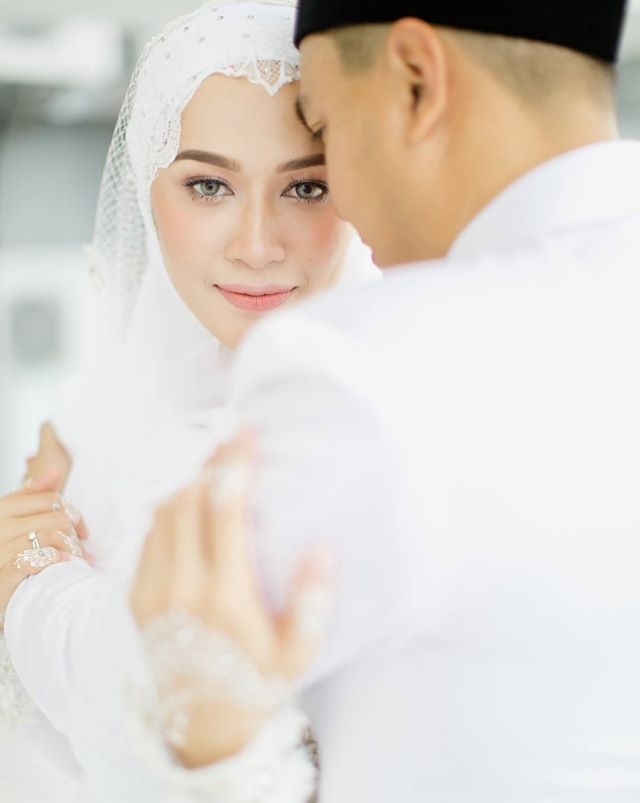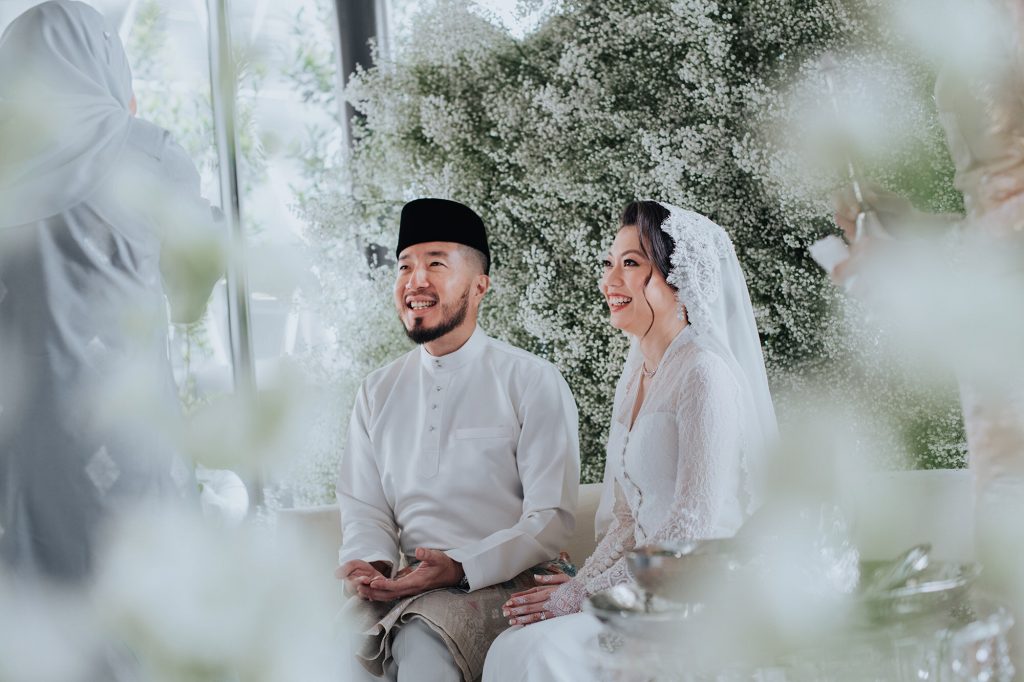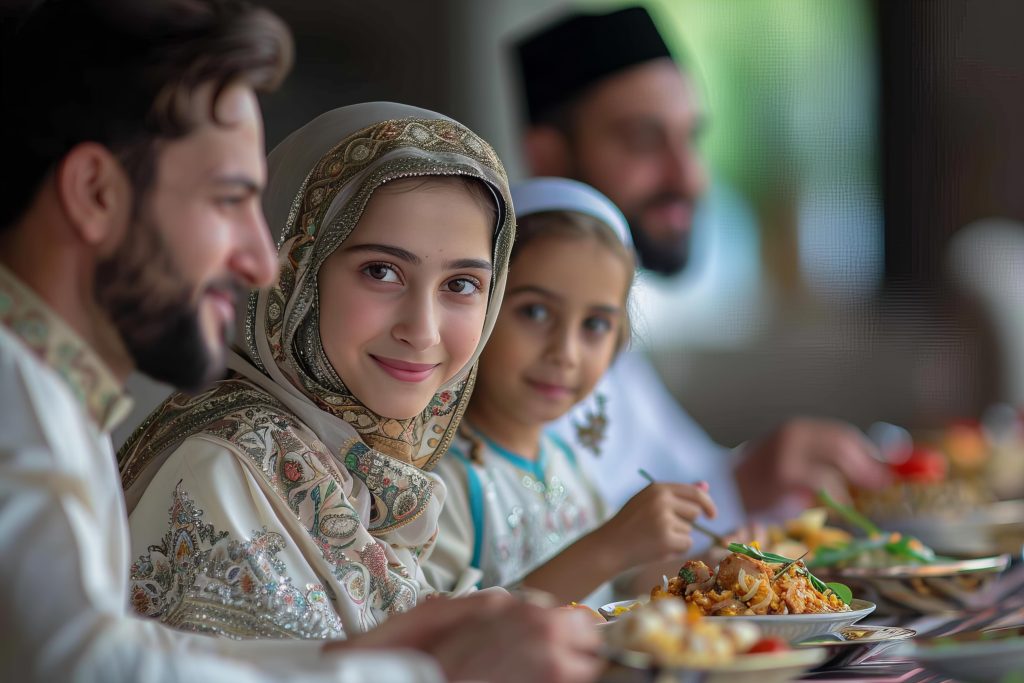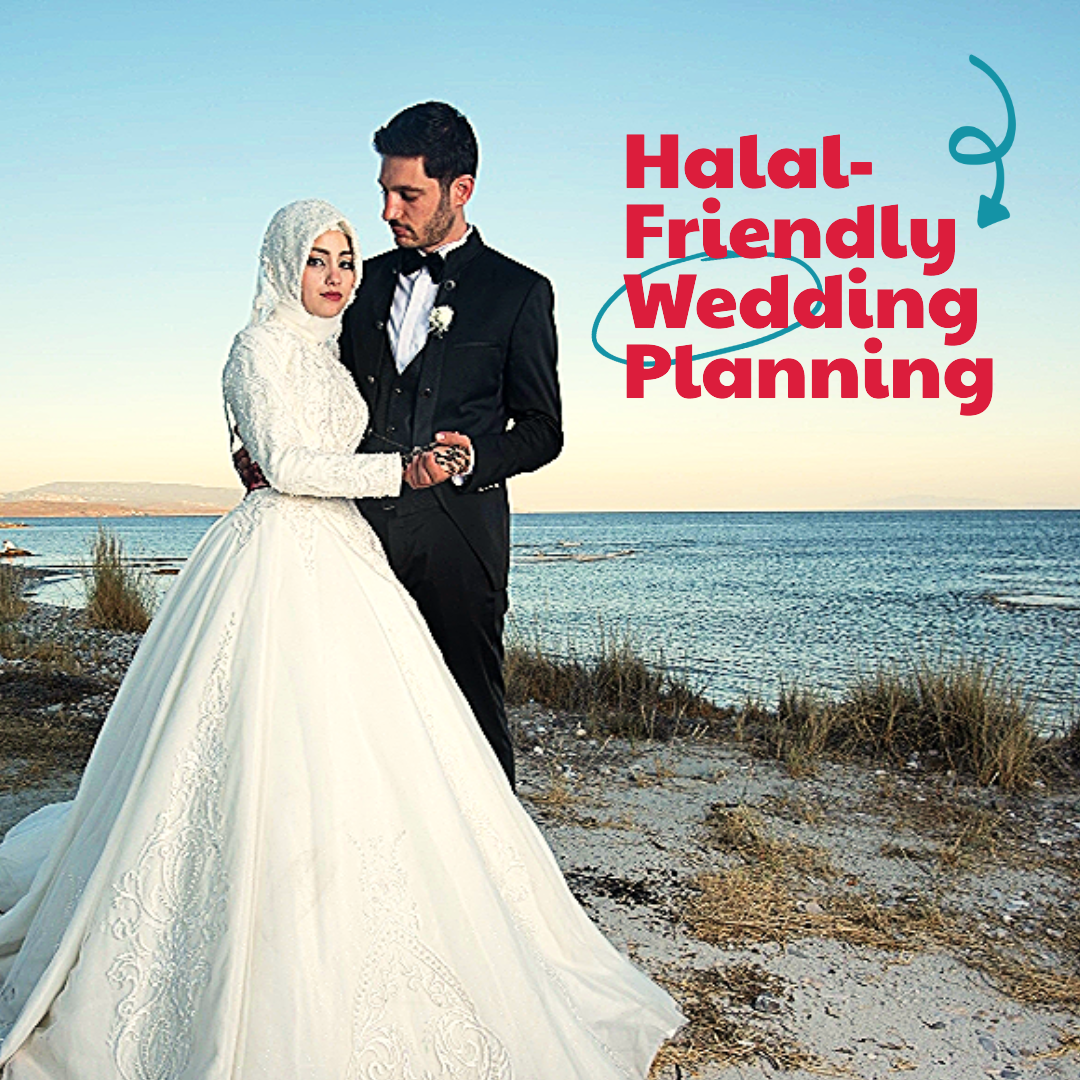Planning a wedding is a significant milestone, especially for Muslim couples who want to ensure their celebration aligns with Halal principles. A Halal-friendly wedding is one that follows Islamic guidelines, focusing on modesty, lawful practices, and traditions that honor the faith. But how can a couple balance tradition with modern wedding trends? This article offers a detailed guide on planning a wedding that respects both Islamic values and the couple’s unique vision for their special day.
1. Understanding Halal Weddings
A Halal wedding refers to a wedding that adheres to Islamic laws and traditions. It is rooted in the idea that marriage is a sacred contract (Nikah) under Allah’s guidance. In practice, a Halal wedding involves the following elements:
- Prohibition of Haram: Avoiding any elements forbidden in Islam, such as alcohol, inappropriate dress, or behavior.
- Gender Segregation: Many Muslim weddings separate men and women during the event to maintain modesty.
- Islamic Rituals: The ceremony is typically officiated by an Imam, with the signing of the Nikah contract and the setting of the Mahr (mandatory dowry).
2. The Importance of Intention (Niyyah) in Halal Weddings

Every action in Islam begins with the right intention, or Niyyah. When planning a Halal wedding, couples should begin with the goal of pleasing Allah (SWT) and fostering a marriage that strengthens their faith. Starting with a Dua (prayer) for guidance can help the couple stay focused on their religious obligations throughout the planning process.
Example: A couple might say the following Dua before starting their wedding planning: “O Allah, we seek Your guidance in every step of our marriage, and we pray that this union is blessed and brings us closer to You.”
3. Choosing a Halal Venue
When selecting a venue, consider the following to ensure it aligns with Halal guidelines:
- Mosque Weddings: Many Muslim couples choose to have the Nikah performed in a mosque, as it is a blessed space dedicated to worship. The Nikah itself is simple, usually involving the recitation of verses from the Quran and the signing of the marriage contract.
- Gender Segregation: If you’re hosting a larger reception, consider how the venue will accommodate separate areas for men and women. This can be done with partitions, separate seating areas, or entirely different rooms. Some venues are accustomed to hosting Halal weddings and will be prepared for these requests.
- No Alcohol: Ensure the venue supports an alcohol-free policy. Some venues may allow you to bring in your own caterers or beverage suppliers, but it’s essential to confirm that no alcohol will be served.
Example: A couple held their wedding reception at a hotel that offered separate banquet rooms. The men gathered in one room for dinner, and the women in another, but both groups could see the couple’s entrance on separate screens, ensuring everyone shared in the celebration.
4. Modesty in Wedding Attire

Islamic tradition emphasizes modesty (Hayaa) in dress, especially for significant life events like a wedding. When choosing wedding attire, here are some key guidelines:
- For the Bride: Brides are encouraged to wear modest dresses that cover the arms, chest, and legs. Many choose a Hijab or veil to cover their hair. Modesty doesn’t mean sacrificing beauty—many bridal designers now offer beautiful, modest gowns that align with both fashion trends and Islamic values.
Example: A popular style for Muslim brides is a long-sleeved gown with lace details, paired with a Hijab that matches the dress’s fabric. Some brides opt for intricate henna designs on their hands, adding a cultural and traditional element to their look.
- For the Groom: Grooms should wear attire that is clean, presentable, and modest. This could be a suit, a Sherwani (traditional South Asian attire), or a Thobe (traditional Arabic robe). Avoid anything too flashy or overly luxurious, as simplicity and modesty are valued in Islam.
Example: A groom from a Middle Eastern background might choose a white Thobe with a black bisht (a cloak worn over the Thobe), while a South Asian groom may prefer a Sherwani with traditional embroidery.
5. Halal Food and Catering
The food served at a wedding is a crucial part of the event, and for a Halal-friendly wedding, all food must comply with Halal dietary laws.
- Halal Certification: Ensure your caterer is Halal-certified, meaning the meat is slaughtered according to Islamic law, and there are no forbidden ingredients (like pork or alcohol) in any dishes.
Example: A Muslim couple hired a local Halal caterer to serve a buffet featuring dishes like lamb biryani, chicken shawarma, and vegetarian dolma. They also ensured that desserts, like baklava and kheer, were free from any alcohol or gelatin made from non-Halal sources.
- Mocktails and Beverages: To replace traditional alcoholic drinks, consider serving mocktails, fresh juices, or sparkling water. These festive drinks can be just as exciting without violating Islamic principles.
Example: A wedding included a mocktail bar featuring drinks like a pomegranate mojito, a cucumber cooler, and a mango lassi, offering guests non-alcoholic alternatives while maintaining a celebratory feel.
6. Nikah and Islamic Rituals

The Nikah ceremony is at the heart of any Muslim wedding. Here’s how to ensure it follows Islamic practices:
- Reciting the Nikah Contract: The bride and groom verbally accept each other as husband and wife, witnessed by family, friends, and the officiating Imam or Qadi (Islamic judge). The couple will also agree on the Mahr—a gift from the groom to the bride, which can be monetary or symbolic, as long as it’s agreed upon.
Example: During the Nikah ceremony, the couple recited their vows and the groom gave the bride a gold ring and a copy of the Quran as her Mahr.
- Dua and Prayers: Following the Nikah, it’s common for guests to offer prayers for the couple’s health, happiness, and prosperity. This is a blessed moment, often accompanied by family members reciting Dua.
7. Gender Segregation and Modesty in Social Interactions
Islam emphasizes modesty in interactions between men and women, particularly during social gatherings. In many Halal weddings, this is addressed by providing separate spaces for male and female guests.
- Separate Areas for Men and Women: If the couple prefers gender segregation, they can arrange for separate seating at the reception. This can be done with simple partitions, separate banquet halls, or even alternating times when guests visit different sections of the venue.
Example: At one wedding, the women celebrated in a separate room, dancing and enjoying music, while the men had their gathering in another space. Both groups came together only for the bride and groom’s entrance and final farewell.
- Modesty in Socializing: To ensure a Halal atmosphere, it’s essential to remind guests to dress modestly and follow Islamic guidelines in their interactions.
8. Halal Entertainment

Entertainment can be incorporated into the wedding while respecting Islamic principles.
- Nasheeds: Instead of traditional music, consider hiring performers to sing Nasheeds—spiritual songs that praise Allah and the Prophet Muhammad (PBUH), often without musical instruments.
Example: A couple invited a well-known Nasheed singer to perform at their reception, offering uplifting spiritual entertainment that aligned with Islamic guidelines.
- Traditional Dances: Some cultures incorporate traditional dances at weddings, such as Debke or Bhangra. These can be performed in gender-segregated spaces or within the bounds of modesty.
9. Gifts and Islamic Etiquette
While gift-giving is common, Islamic etiquette encourages modesty and generosity without excess.
- Sadaqah: Some couples ask guests to make a donation to a charity in their name rather than bringing expensive gifts. This reflects Islamic values of charity and giving back to the community.
Example: A couple requested that guests donate to a local orphanage instead of buying wedding gifts, embodying the Islamic principle of Sadaqah (charitable giving).
10. Budgeting for a Halal-Friendly Wedding
Islam encourages simplicity and discourages excessive spending. It’s important to plan a wedding that reflects your values without leading to financial strain.
- Modesty in Spending: Focus on the essentials, such as the Nikah ceremony, Halal food, and modest attire. Avoid spending on extravagant décor or unnecessary luxuries.
Example: One couple kept their wedding simple by holding a small reception at home, serving a catered Halal meal, and donating the savings to a local mosque.
Frequently Asked Questions (FAQs)
1. What is a Halal wedding?
A Halal wedding is a wedding that complies with Islamic principles, including no alcohol, modest attire, and often gender segregation.
2. Is music allowed at a Halal wedding?
Traditional music is often replaced with Nasheeds, or spiritual songs, as some Islamic scholars view musical instruments as impermissible.
3. Can I serve Halal food at any venue?
Yes, but it’s essential to work with Halal-certified caterers or ensure the venue allows you to bring in your own Halal food.
4. How do I ensure modesty at my wedding?
Encourage guests to dress modestly, provide gender-segregated spaces, and avoid any elements that may lead to immodest behavior.
5. Can non-Muslim guests attend a Halal wedding?
Yes, non-Muslim guests are welcome, but it’s important to inform them of the Islamic customs, such as modest dress and behavior.
6. What is the significance of the Mahr in a Halal wedding?
The Mahr is a mandatory gift from the groom to the bride, symbolizing his responsibility and commitment. It can be monetary or symbolic.
Summary
A Halal-friendly wedding is a beautiful way to celebrate a union while staying true to Islamic values. By prioritizing modesty, simplicity, and lawful practices, Muslim couples can honor their faith while creating lasting memories. With careful planning and thoughtful consideration of Islamic principles, your wedding day can be both a joyous celebration and an act of worship.
References
- The Inspiring Role Of Halal In Everyday Life: More Than Just Food
- Halal Certification Guidelines
- The Science Behind Halal: Health Benefits and Guidelines
- The Halal Lifestyle: A Path to Wellness
- Family-Friendly Halal Tourism: A Personal Narrative

